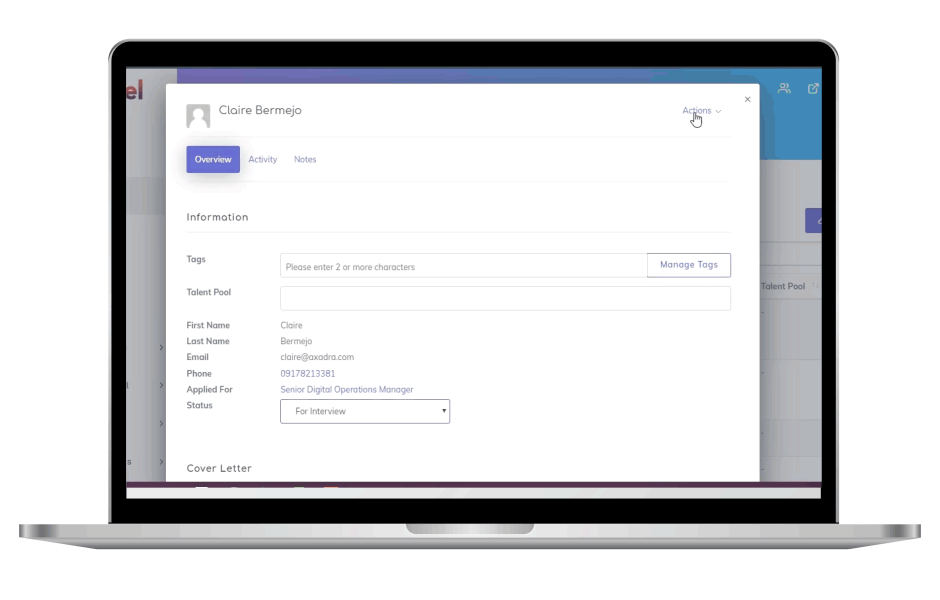A Guide to How Recruitment Agencies Work
Reaching and hiring qualified employees is one of the most essential but challenging tasks facing companies today. To make recruitment more efficient, companies turn to recruitment agencies and other staffing solutions. Recruitment agencies act as intermediaries between companies and potential employees, streamlining the process of finding top talent.
In this guide, let’s explore how recruitment agencies work, some considerations when partnering with a third-party recruiter, and what to expect through the stages of hiring. Whether you’re unfamiliar with the concept of recruitment agencies or looking to improve your existing process, this article will equip you with the knowledge and tools to make better hiring decisions.
What is a Recruitment Agency?
A recruitment agency handles the hiring process from start to finish. Recruiters can be a firm, a small team, or an individual that connects employers with potential candidates. They are responsible for finding, screening, and selecting candidates for various positions within an organization.
What does a recruitment agency do? They act as intermediaries and work on behalf of a company or business that needs professional assistance in attracting and presenting top talent to hiring managers.
Types of Recruitment Agencies
Recruitment agencies come in many forms and specialize in different hiring needs. Selecting a recruiter will depend on your short- and long-term objectives, services offered, and contract models.
Traditional Recruitment Agencies
Traditional recruitment agencies act as a one-stop shop for companies seeking to fill all kinds of positions, from temporary, project-based work to permanent placements. These agencies charge a fee based on a percentage of the hired applicant’s salary.
Temporary Recruitment Agencies
More commonly known as temp agencies, the name suggests that they source candidates for temporary, short-term, and project-based work. Companies often enlist the help of temp agencies for specific projects, peak periods, or rush hiring.
Niche Recruitment Agencies
These recruiters focus on hiring applicants in niche industries or job functions, such as IT, healthcare, finance, or engineering, or roles at a leadership or management level. Their in-depth knowledge of the industry and their exclusive talent pool allows them to filter highly qualified candidates.
Contingency Recruitment Agencies
Contingency recruiters are only paid when a successful match is made and the position is filled. In this setup also known as “no win, no fee,” contingency recruitment agencies handle multiple job openings and present a range of candidates quickly.
Recruitment Process Outsourcing (RPO) Agencies
An RPO agency acts as an extension of your HR team and takes over the client’s entire recruitment function. Companies usually hire an RPO agency during times of high-volume hiring when the existing recruitment team can’t handle the workload, or when the company doesn’t have a dedicated HR department.
Retained Recruitment Agencies
Often referred to as executive search firms or headhunters, these agencies are hired for their expertise in finding senior-level executives. They receive an upfront fee and are retained exclusively by the hiring company.
When choosing a recruitment agency, consider the type of hire you need. For high-volume, temporary positions, a temp agency or contingency agency might be ideal. However, for complex, specialized roles crucial to your long-term goals, a niche agency with deep industry expertise would be a better fit.
Evaluate the agency’s previous experience and track record. Do their services align with your budget and timeline? Can they source the candidates you’re looking for? With the right recruiter, companies hire the best fit fit for the job and get a return on their investment.
Typical Responsibilities of Recruiters
Before partnering with a recruiter, it pays to know their specific responsibilities and what to expect from them. This will help you decide whether a recruiter is the right fit for your business. So, what does a recruitment agency do? They perform a myriad of tasks to ensure the right match between employers and candidates:
Understanding Client Needs
Recruiters start by understanding the employer’s requirements, including job openings, job descriptions, qualifications, and company culture. If you’re unsure about how to make a comprehensive and attractive job ad, the recruiter can also offer suggestions on how to advertise the following:
- Job Title
- Responsibilities and Duties
- Benefits and Compensation
- Reason the Position is Open
- Soft and Hard Skills Required
- Company Culture
- Growth and Development Opportunities
- Other Perks
Sourcing Candidates
Once the agency has all the information, it will create a job posting on platforms such as LinkedIn, Indeed, Kalibrr, Glassdoor, etc. They can also utilize your company’s website, social media, or preferred sourcing channel. One advantage of working with a recruiter is getting access to their cloud-based tools that make the hiring process more efficient, such as job boards and employee referral tracking systems.
Screening Applicants
Interviewing and evaluating candidates is one of the most time-consuming and resource-intensive tasks of recruitment. What a recruitment agency does is relieve companies of this burden by pre-screening candidates through interviews and assessments to ensure they meet the necessary criteria before presenting them to the employer.
Presenting Potential Hires to the Hiring Manager/s
After a rigorous screening process, the recruiter shares a shortlist of top talent and arranges interviews with the hiring manager/s. This reduces the back and forth of scheduling and feedback between the applicant and management. Recruitment agencies also ensure that the company only gets to interview the most qualified and committed candidates at the last stages of the hiring process.
Sending Job Offers and Facilitating Negotiations
Agencies assist in negotiating job offers, including salary and benefits, acting as a mediator between the employer and the candidate. This ensures that applicants have one point of contact throughout the negotiation. Recruiters are also responsible for informing unsuccessful candidates and ending the hiring process on a good note.
Providing Support in Onboarding
Some agencies offer full-service staffing support, helping new hires integrate smoothly into the company and assist with overcoming any employee onboarding challenges. This involves providing orientation, training, and administrative paperwork.
Do You Need a Recruitment Agency: Things to Consider
There’s not a one-size-fits-all approach to recruitment, and not all companies need full-service staffing. Some businesses already have in-house recruiters but they might need additional support in other specific aspects of the hiring process. For example, a company may only need someone to help with job posting and filtering applications but can handle interviews on their own. Whatever the case, how recruitment agencies work is they provide expertise in areas in which the company lacks resources.
Here are some scenarios where companies might need a recruiter:
- High Turnover Rate: Companies with high turnover struggle to keep up with hiring needs. Recruiters can help find replacements for recently vacated positions.
- Rapid Growth: When a business scales up, it needs to fill multiple new positions in a short amount of time.
- Specialized Roles: Finding candidates with specific skills or qualifications can be challenging and take too long.
- Lack of HR Resources: Small to mid-sized businesses without dedicated HR departments often rely on recruitment agencies.
- Confidential Searches: When hiring for sensitive or high-level positions, companies may prefer to keep the search confidential.
Other Questions to Ask
As you choose a recruiter to work with, ask the following questions to get the most out of their services:
- What is the agency’s type or specialization?
- Which services do they offer?
- How much experience do they have in filling similar roles in your industry?
- What is their pricing structure?
- What is their step-by-step sourcing and recruitment process?
- Do they have referrals or testimonials from other companies?
- Do they have awards or certifications?
- How do they handle wrong hires?
- How will they add value to your existing recruitment process?
Benefits of Working with a Recruitment Agency
Finding the perfect candidate can feel like searching for a rare gem. You spend countless hours sifting through resumes and interviewing applicants, just to hire top talent. Recruitment agencies save you valuable time and resources and can be a game-changer for businesses of all sizes.
Here are the benefits of working with a recruiter:
Time and Cost Efficiency
Recruitment agencies handle time-consuming tasks like sourcing and screening, allowing companies to focus on their core activities. This can significantly reduce the cost of hiring an employee.
Access to a Larger Talent Pool
Recruiters have access to extensive networks of candidates that businesses may not be able to tap on their own. They also have established connections with passive candidates who are not actively looking for a new job but are open to opportunities.
Reduced Risk of Bad Hires
Hiring unsuitable candidates can be a waste of resources, and you miss out on the right people. Recruitment agencies thoroughly vet candidates and minimize the risk of bad hires.
Flexibility
Temporary staffing agencies provide flexible workforce solutions that allow companies to adjust their staffing levels based on demand.
Recruitment agencies can be a valuable resource for companies looking for qualified applicants. To reap the benefits above and successfully hire top talent, it’s important to ask how do recruitment agencies work and what they can do for you.
Fasttrack Your Hiring Process with Skillfuel
Need a more unified and strategic approach to recruitment? Search no further than Skillfuel. We offer an all-in-one recruitment management system that covers all aspects of your staffing needs—from effective talent acquisition to referral tracking.
Let us be your partner in achieving recruitment excellence. Sign up for a free version of our software or contact us for inquiries!














